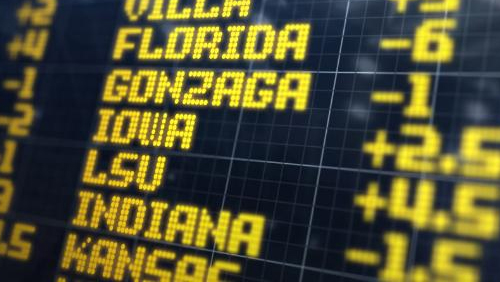The Indiana Gaming Commission (IGC) has taken a step back from the sports wagering frenzy that has swept many U.S. states this year, in order to get a clearer picture of the game’s full potential in the state.
 According to a Statehouse File report, the Indiana regulator tapped market advisory firm Eilers & Krejcik Gaming LLC in late July to conduct a full study on the impact of sports betting in the state.
According to a Statehouse File report, the Indiana regulator tapped market advisory firm Eilers & Krejcik Gaming LLC in late July to conduct a full study on the impact of sports betting in the state.
The state reportedly agreed to pay Eilers & Krejcik $74,999 over a two-year period for the sports betting research, including fiscal impact estimates and policy considerations. Eilers & Krejcik was given an “aggressive timeline” to work on their market research.
IGC Executive Director Sara Gonso Tait said the regulator took the step upon the recommendation of their counterparts in West Virginia, where sports betting was regulated in May.
Eilers & Krejcik declined to make a comment on the agreement, according to the news outlet. However, the advisory firm said that it will submit its findings during the scheduled interim study of the lawmakers this fall.
Indiana had been seeking to regulate sports betting even before the U.S. Supreme Court issued its landmark decision repealing the Professional and Amateur Sports Protection Act (PASPA) of 1992 in May.
HB 1325, which was introduced by Rep. Alan Morrison in January, sought to allow sports betting – including online and mobile wagers – at state-licensed gaming operators. The only wrinkle of the bill was the 1 percent tax on sports betting handle.
However, the bill died during the plenary sessions after a majority of lawmakers opted to study the impact of regulating sports betting. Morrison plans to reintroduce the bill next year, even before the legislative body finishes its research.
“Knowledge is power, and it’s good to identify as much data ahead of time as we can,” Morrison said, according to the news outlet. “But we’re moving forward this session.”
In a January 2018 report, Eilers & Krejcik predicted that that sports betting bills would be in the cards in at least 18 U.S. states if the high tribunal struck down the betting ban. The same research showed that only 11 of these 18 states were likely to have a good chance of enacting their betting bills this year.
New Jersey, Mississippi, West Virginia, and Delaware have already enacted their respective sports betting legislation this year.